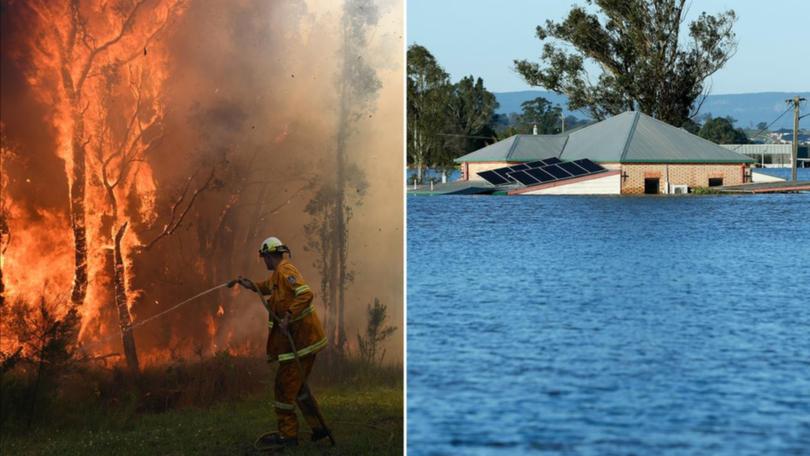Weather: After catastrophic heat waves, droughts, and wildfires data shows 2024 will be hottest year on record
After months of catastrophic heatwaves, droughts, wildfires and tropical cyclones, data has confirmed 2024 is now certain to be the hottest year on record.

This year will be the world’s hottest since records began, with extraordinarily high temperatures expected to persist into at least the first few months of 2025.
The data from the European Union’s Copernicus Climate Change Service (C3S) comes two weeks after UN climate talks yielded a $US300-billion ($A469 billion) deal to tackle climate change, a package poorer countries blasted as insufficient to cover the soaring cost of climate-related disasters.
C3S said data from January to November had confirmed 2024 is now certain to be the hottest year on record, and - and exceed the warming limit that countries had pledged to try and avoid in the landmark Paris Agreement negotiated in 2015.
Sign up to The Nightly's newsletters.
Get the first look at the digital newspaper, curated daily stories and breaking headlines delivered to your inbox.
By continuing you agree to our Terms and Privacy Policy.It’s the first year in which average global temperatures exceed 1.5 degrees Celsius above the 1850-1900 pre-industrial period.
The previous hottest year on record was 2023.
Extreme weather swept around the world in 2024, with severe drought hitting Italy and South America, fatal floods in Nepal, Sudan and Europe, heatwaves in Mexico, Mali and Saudi Arabia that killed thousands, and disastrous cyclones in the US and the Philippines.
Scientific studies have confirmed the fingerprints of human-caused climate change on all of these disasters.
Last month ranked as the second-warmest November on record after November 2023.
“We’re still in near-record-high territory for global temperatures, and that’s likely to stay at least for the next few months,” Copernicus climate researcher Julien Nicolas told Reuters.
Carbon dioxide emissions from burning fossil fuels are the main cause of climate change.
Cutting emissions to net zero - as many governments have pledged to eventually do - will stop global warming from getting worse. Yet despite these green pledges, global CO2 emissions are set to hit a record high this year.
Scientists are also monitoring whether the La Nina weather pattern - which involves the cooling of ocean surface temperatures - could form in 2025.
That could briefly cool global temperatures, though it would not halt the long-term underlying trend of warming caused by emissions.
The world is currently in neutral conditions, after El Nino - La Nina’s hotter counterpart - ended earlier this year.
“While 2025 might be slightly cooler than 2024, if a La Nina event develops, this does not mean temperatures will be ‘safe’ or ‘normal’,” said Friederike Otto, a senior lecturer at Imperial College London.
“We will still experience high temperatures, resulting in dangerous heatwaves, droughts, wildfires and tropical cyclones.”
C3S’ records go back to 1940, and are cross-checked with global temperature records going back to 1850.
